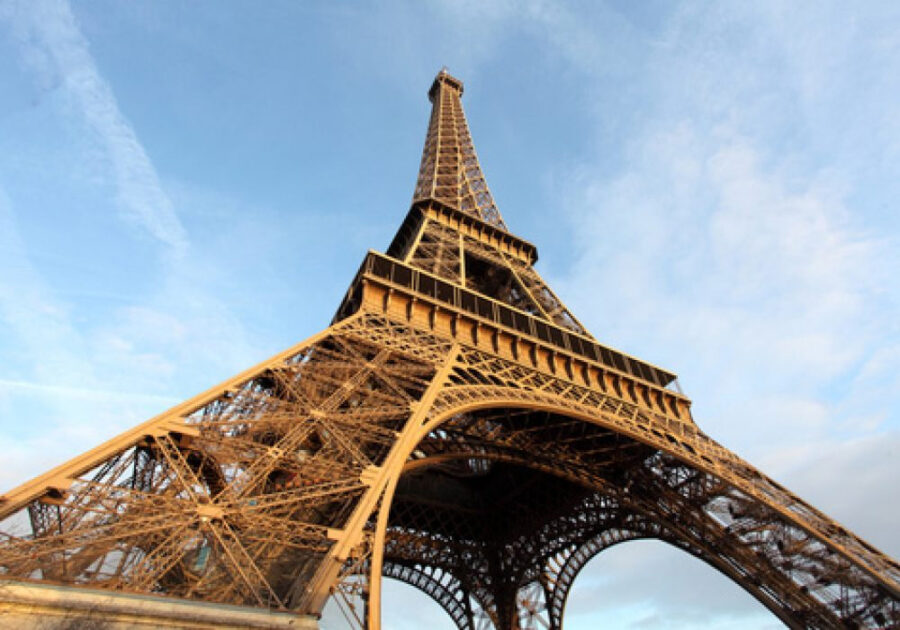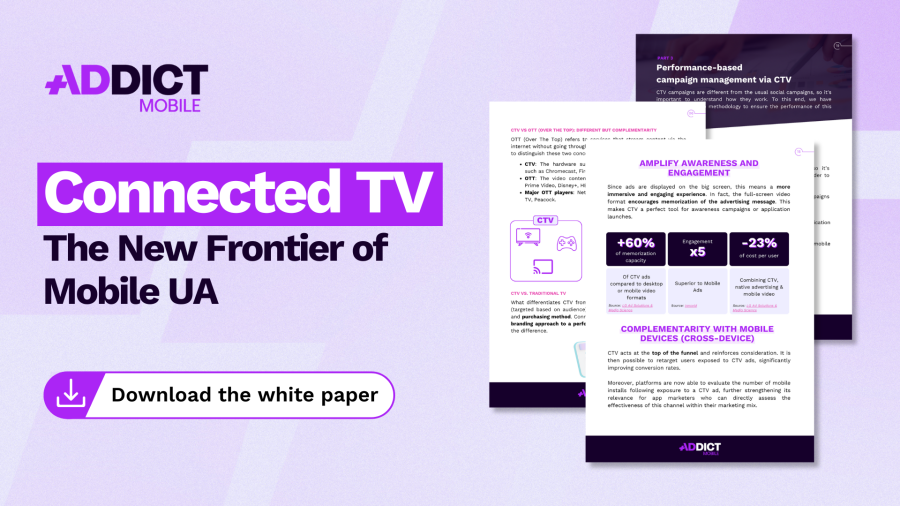UA: How GenAI helps us diversify our creative production
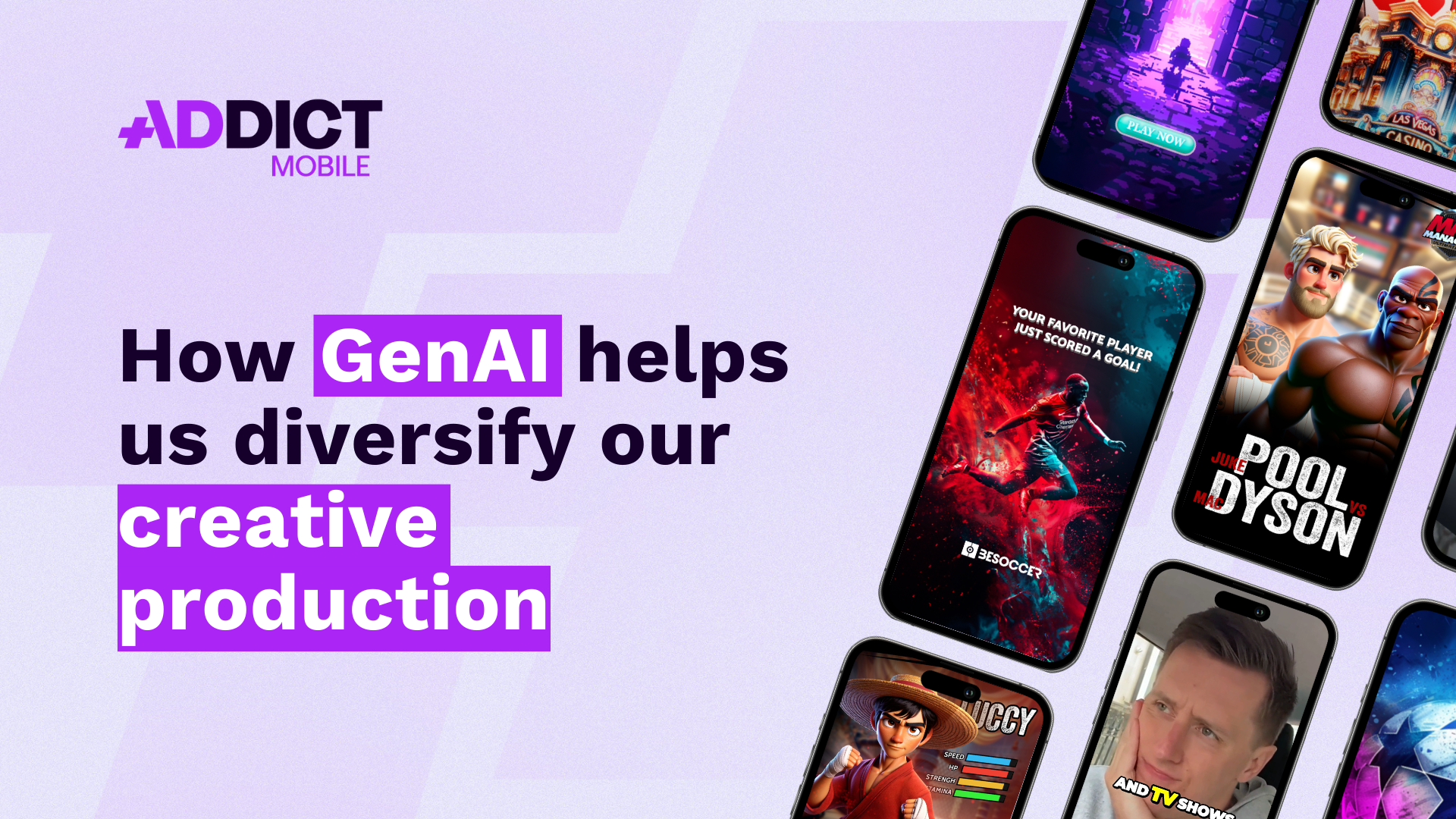
-5% CPI, +23 points ROAS, GenAI creatives are increasingly becoming a performance driver for apps. When combined with a traditional approach, they allow us to diversify our creative strategy and expand the realm of possibilities.
Here’s a look at the creatives produced in recent months and the various applications of GenAI we’ve implemented for our clients.
1. Generation of specific assets
Producing creatives for UA app campaigns requires significant production capacity to meet the demands of the platforms where the ads are displayed. For example, to perform well on TikTok, it is recommended to produce a large number of visuals and refresh them regularly to maintain performance.
Developing complex assets, such as 3D elements, takes considerable time, which is generally difficult to allocate to UA creatives given the recommended frequency of diversifying visuals. Additionally, image banks do not necessarily provide specific graphic elements tailored to an application. In this context, AI helps us enrich our creatives with elements that would have taken days to create manually.
For the game MMA Manager 2 by Funrock & Prey Studio:
- We generated a wide variety of backgrounds and characters, allowing us to conduct numerous tests to optimize campaign performance.
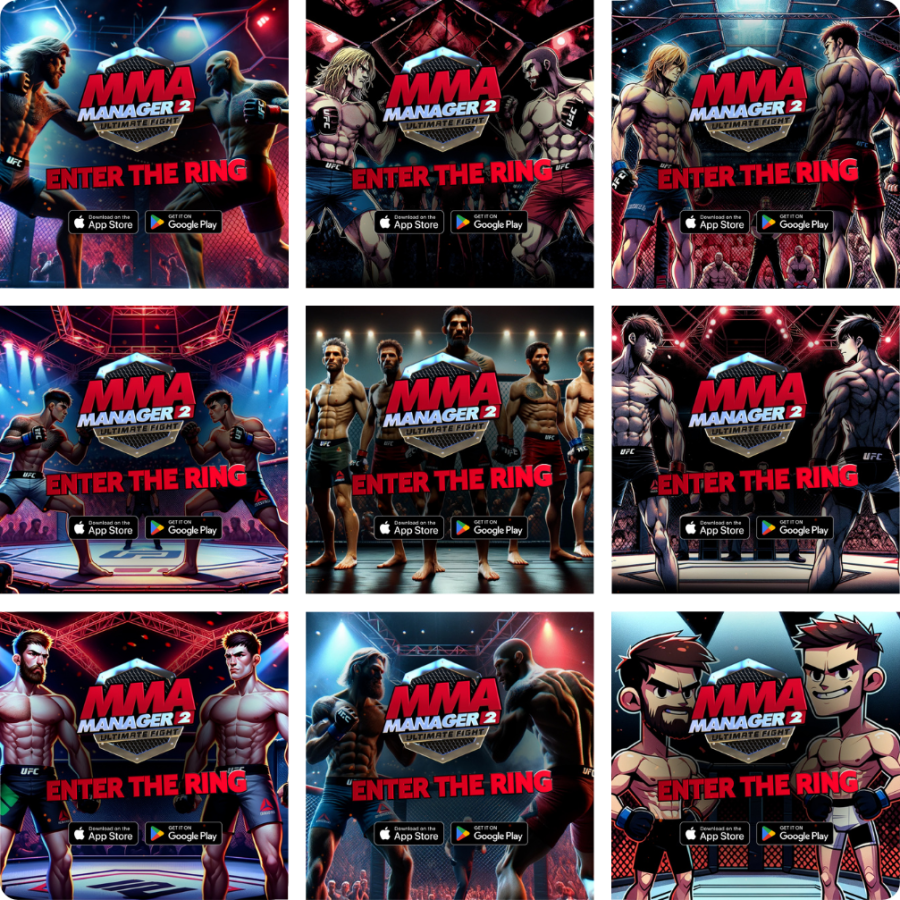
- We also leveraged trends, such as the anticipated fight between Mike Tyson and Jake Paul, to create AI-generated characters inspired by them.
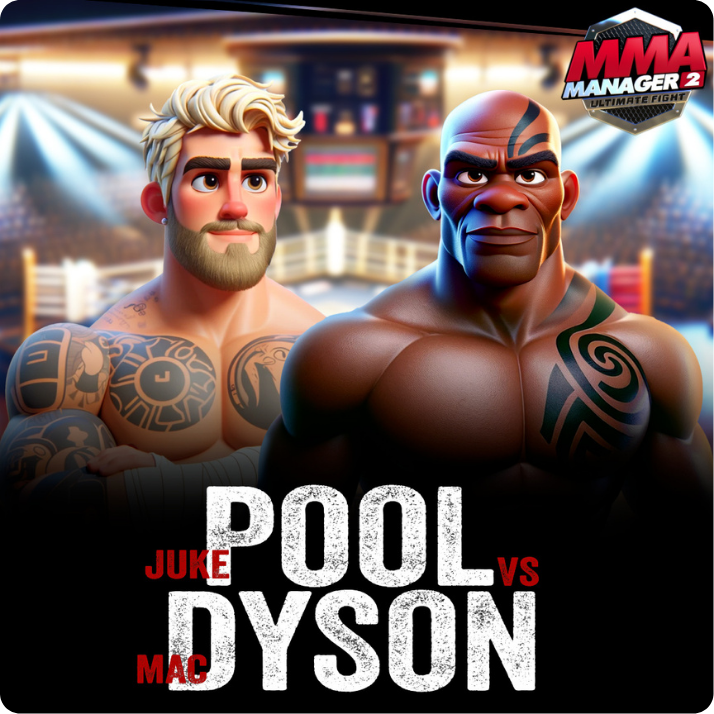
- AI also enabled us to create a gloved hand specific to MMA, which couldn’t be found in image banks.
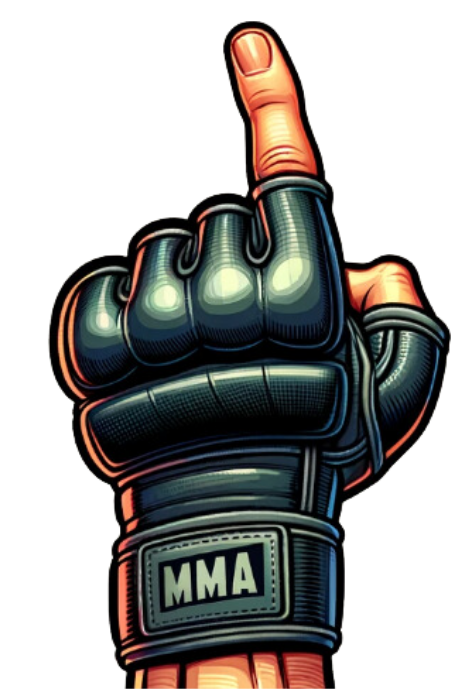
By saving time on creating such assets, we were able to produce over 1,000 visuals in just 4 months for a single project.
GenAI enriches visual production by introducing new elements that were previously unattainable due to time, budget, or resource constraints. It expands the realm of possibilities, removing barriers that once limited the production of certain concepts.
2. UGC video creation and process simplification
The use of GenAI tools significantly optimizes the production of UGC videos, which are widely used to drive app downloads. Direct management with content creators involves a precise selection process, numerous back-and-forth communications, and a fixed production timeline. This can be time-consuming for organizations without a dedicated creative/UGC team. AI now enables the creation of fully generated avatars that can adapt to a variety of needs in terms of age, gender, ethnicity, and more. These avatars can speak an almost unlimited number of languages, and the videos can be edited in real time.
With a single avatar, it is possible to generate a multitude of videos with different backgrounds, texts, and languages, thereby enhancing the A/B testing strategy. Although the variety of profiles is currently limited, it is expected to expand in the future.
Mixing already produced motion videos with these AI-generated UGCs allows us to capitalize on previously created elements that didn’t perform well, optimizing content utilization.
Offering greater flexibility in terms of languages and profiles, AI multiplies creative possibilities. This approach significantly simplifies the production process of UGC videos, which can be very time-consuming, while still supporting the production of traditional UGC that addresses other challenges.
3. An endless range of voice-overs for motion videos
GenAI-generated voice-overs allow for adding voice-overs to existing videos or translating pre-recorded voices. This technology offers a wide range of options in terms of tone and voice, making it suitable for a variety of clients.
The tone can be adjusted to fit the context of the application: warm, inspiring, intense, etc. Additionally, the availability of multiple languages allows for adaptation to all markets.
For one of our clients, A/B testing with and without voice-overs resulted in a 5% reduction in CPI and a 23-point increase in ROAS.
As with UGC videos, AI-generated voice-overs simplify the process. They eliminate the unavoidable delays associated with back-and-forth communications. Modifying a single word in the script can be done almost immediately. All of this aims to produce more content to facilitate A/B testing and identify even more top-performing creatives.
4. A proprietary GPT to diversify concepts
In a drive for innovation, our AI team has developed a proprietary GPT to help the teams push the creative process further and, more specifically, to diversify concepts. This GPT is continuously fed with concrete examples of what is typically done in UA for our clients, enabling it to better respond to requests and propose new, relevant concepts.
Sometimes, we need new perspectives and ideas for a project. The GPT can help broaden our horizons and diversify concepts with the aim of renewing creatives. Simply submit a prompt to the GPT, which will ask specific questions to determine the client’s unique needs and constraints, then propose concept ideas.
Léo Abtroun – UA Director and AI Team Leader
The benefit of this model is that it continuously learns and becomes increasingly relevant, offering image compositions tailored for user acquisition.
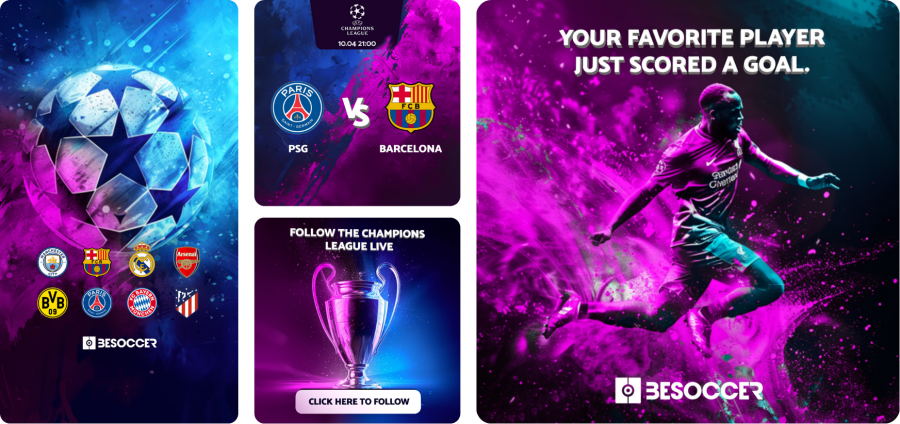
A static visual designed with GenAI tools for one of our gaming projects actually absorbed 88% of the campaign budget, compared to the other static visuals.
This technology saves our teams a significant amount of time, allowing them to focus on other crucial tasks such as creative research and developing new concepts. It also brings a fresh perspective and complements their work.
Towards a future of UA without creative teams?
GenAI is revolutionizing the creative process in UA by boosting efficiency and expanding creative possibilities. It plays a role at various stages, from idea generation to asset production, including the creation of UGC content and personalized voice-overs. This technological support frees up valuable time for creative teams, allowing them to focus on more strategic tasks. In our campaigns, GenAI helps us intensify testing, quickly respond to trends, and effectively adapt to different markets.
However, GenAI tools are not intended to replace the graphic designers in our creative studio. In addition to having deep knowledge in performance acquisition and the mobile environment, our tests often show that the best results come from the combination of human creativity with AI assets. The goal of AI is to support and enhance the productivity and flexibility of graphic design and UA teams to tackle various app-specific challenges.
About Addict Mobile
As a key player in performance-based mobile acquisition for apps, we have assembled a dedicated AI team to address the latest market challenges. Combined with our in-house creative studio of over 10 experts and our proprietary creative technologies, we have the perfect formula for creating UA creatives that enhance your campaign performance. Contact our team today for more information!
NEWS
Article in relation
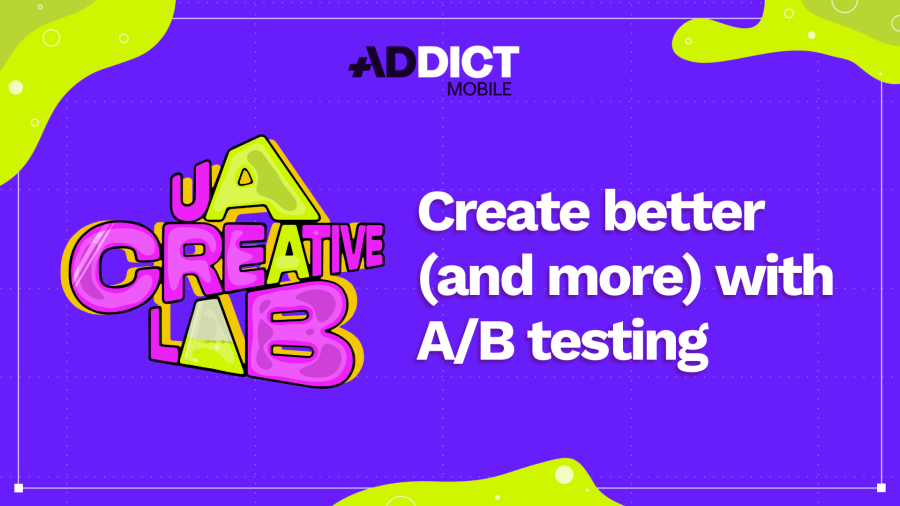
UA Creative Lab #2: Create better (and more)…
Mais produire plus ne suffit pas : encore faut-il savoir quoi produire, pourquoi, et comment itérer efficacement en s’appuyant sur des insights concrets....
Published on 25 June 2025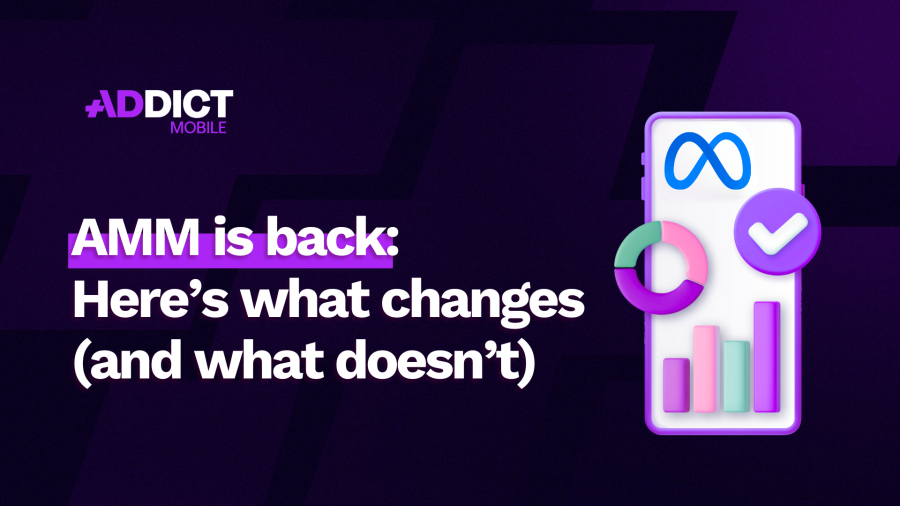
Meta reactivates Advanced Mobile Measurement: what does it…
On June 17, 2025, Meta announced the reactivation of its Advanced Mobile Measurement (AMM) program, once again giving advertisers access to device-level (non-aggregated)...
Published on 24 June 2025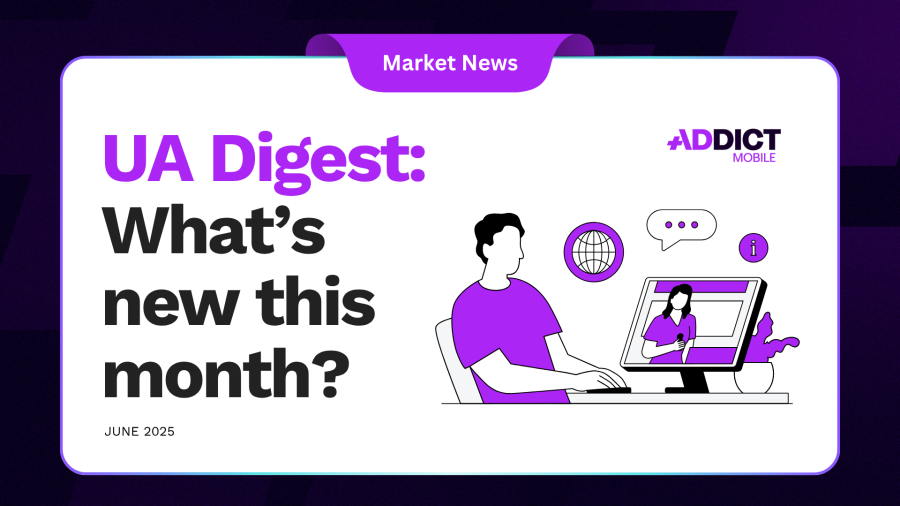
UA Digest #8: What’s new this month?
Discover our User Acquisition Digest, your monthly update on the latest trends and news in mobile marketing and user acquisition! AdAttributionKit takes a...
Published on 20 June 2025